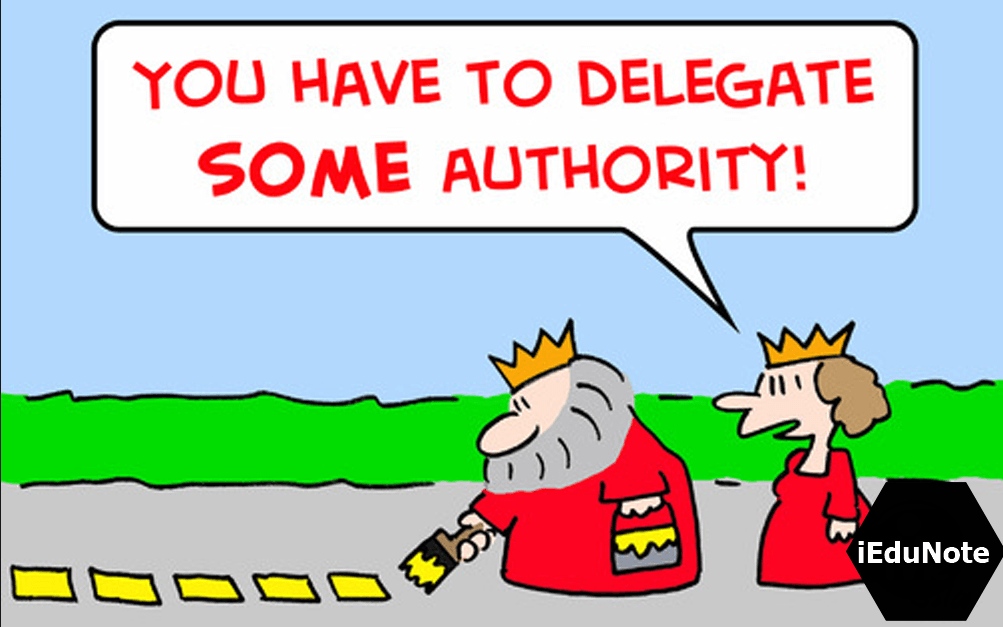As leaders, we often wear many hats, but one of the most crucial skills we must cultivate is the art of delegation. In my coaching practice, I often find seasoned managers who end up taking on too many tasks themselves and feeling stressed about completing all the work. Or, alternatively, delegating tasks, yet having a hard time getting consistent and satisfactory results from their teams.

When done correctly, sharing authority through delegation of work not only motivates your team but also drives efficiency and fosters their growth. Here are some tips to master this vital aspect of leadership:
1. Invest in clear goals.
Many of us have heard of SMART goals or Objectives and Key Results, but not many make an effort to send more than a one-liner to their team members when asking them to do something. However, a good leader should understand that the better they formulate the task, the better and quicker result they could expect.
Normally, I tend to at least cover the basics:
- What needs to be done – the objective of an assignment. Be specific, share your thoughts, but don’t go into details on HOW the work needs to be done – leave it to your team to decide.
- The reason for this task and the intended use of the result – why is it important and what bigger goal is it going to accomplish. This is often skipped by many managers, but it is a crucial part of any task. It doesn’t only cultivate the sense of belonging, but also navigates the assignee in their creative and critical thinking journey.
- The “minimal viable product” – how the end result should look like and the level of detail needed at this point in time. A simple statement like “5-10 slides that will help to sell the idea to the client” or “A training deck covering X, Y, Z concepts” will give your team a good idea of what is needed.
- Timeline – by when do I need it. If no hard deadline exists – it’s better to ask your team member(s) to set their own timeline to which you could agree or disagree. If you disagree, don’t simply state your date. Instead, a discussion is due. Use this as an opportunity to check if the task is understood correctly, or if the approach chosen by your team member makes sense. In many cases, we’d also agree on the date by when I could see some result, even far from completion.
2. Do not assign tasks unless you absolutely have to.
Managers are often tempted to assign all the important work to their most trusted team members. However, this usually results in the scenario that most of us are familiar with: the trusted team members getting burned out while the rest of the team feels like they were not given an opportunity to grow. And even if you do your best to evenly distribute the tasks among your team members, it will cost you time and effort while still not guaranteeing a positive outcome.
A good leader will enable their team to make their own choices and let them pick their tasks.
Your team members may be looking for opportunities to learn new skills or contribute to something they haven’t worked on before. You need to support these intentions and help them grow.
It saves you time and energy as you are delegating this decision to the team.
This can be an opportunity for your team members to pair up and learn from each other. Encourage group work.
This approach ensures that the task would actually be completed, as team members are not forced into it. Pull vs. Push.
Only assign tasks if the team doesn’t pick, or if the work is extremely time-sensitive.
3. Set decision-making guidelines.
Make it clear for your team which decisions they are free to make on their own, and which require your approval or consultation. Remember, that the closer the decision-making power is to the work, the quicker the results are produced. Trust your team’s expertise to make the right choices.
4. Establish a cadence.
Establishing a regular cadence of sync sessions and retros with your team helps with staying on top of things without becoming a micro-manager. If the team seems stuck and more attention is required for a specific task, take on the coaching role and consider involving the rest of the team to help.
5. Recognize and celebrate effort.
People are paid to do their job, but don’t take loyalty and hard work for granted. It is your role as a leader to recognize the hard work and don’t only celebrate successes. Learn to celebrate effort, even if results are not as you’ve expected. Expect things to not go as planned. Help your team convert failures into growth opportunities. Offer only timely and constructive feedback. Help them learn and get better every day. Only then your team could trust you, and only then you could trust them.
6. Seek team’s feedback.
Open, continuous feedback is crucial for your and your team members’ well-being and the long-term success of your team. Don’t wait for the yearly HR surveys to hear back from your team. Adopt an open-door policy and let the ideas flow. Just like you’re trying to help your team, let them help you to become an even better leader for them.
In mastering delegation, leaders unlock the potential of their teams, fostering autonomy, growth, and trust. By empowering individuals, celebrating effort, and embracing open communication, effective delegation becomes more than a skill— it becomes the bedrock upon which successful leadership and thriving, cohesive teams are built.

